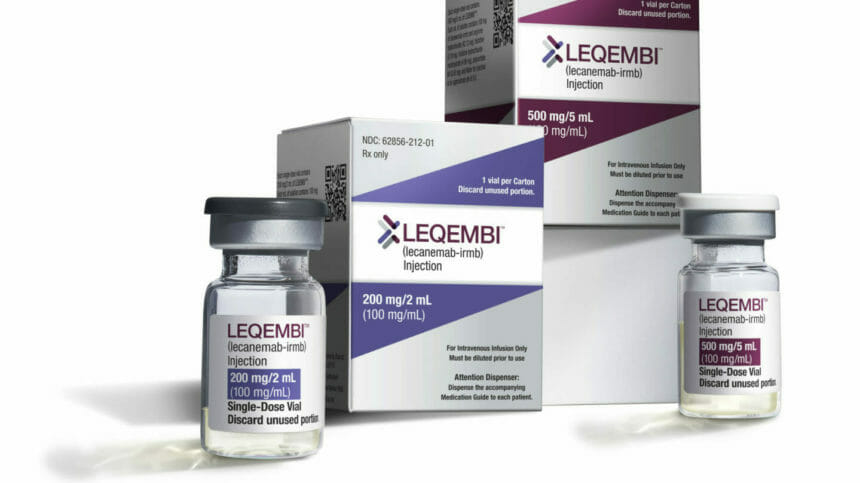
Leqembi; Credit: Eisai
New data from the makers of the Alzheimer’s disease drug lecanemab (Leqembi) supports traditional, or “full” federal approval, a step up from the fast-tracked approval the drug received in January, advisers to the Food and Drug administration decided Friday. This major development, which the FDA will mull, follows a decision by Medicare to limit coverage of drugs in the class until they receive full approval.
Six independent, expert advisers agreed unanimously that clinical trials findings confirm benefits to patients with early Alzheimer’s disease, for whom the drug is currently indicated.
In making the decision, Tanya Simuni, MD, a member of the panel and a professor of neurology at Northwestern University Feinberg School of Medicine said, “I believe the benefit versus risk are beneficial, acceptable and in line with this class of therapeutics, especially considering the burden of the disease and the progressive nature of the disease,” according to Reuters.
The FDA is expected to make its final decision on full approval for Leqembi in early July, Reuters reported. If it does so, Leqembi would be the first drug in its class to gain this status. The agency typically follows the decision of its advisers in these matters.
A full approval would immediately coincide with broadened Medicare coverage of the drug, which currently is only approved for use in clinical trials, according to a recent announcement by the Centers for Medicare & Medicaid Services. If full approval and broad Medicare coverage transpire in July, physicians who wish to prescribe Leqembi to qualified patients must join and participate in a patient data registry, CMS announced in early June.
Leqembi, made by Biogen and Eisai, and its predecessor Aduhelm are monoclonal antibodies that target Alzheimer’s brain plaques and were originally granted fast-tracked approvals based on demonstrated need. Clinical trial data at the time showed that treatment with Leqembi slowed measures of cognition and function by approximately 27% over an 18-month period when compared with a placebo group.
Medicare’s decision to limit coverage for the drugs when they have provisional, accelerated approval has prompted outcry from patient advocates. In response, the Veterans Health Administration in March opted to separately provide coverage for the drug to qualified veterans.
One study estimated that broadened coverage of the drug combined with demand among a growing population of people living with Alzheimer’s would raise Medicare costs by $2 to $5 billion a year. But other analysts have estimated that it will cost Medicare more in the long term not to cover these drugs.




